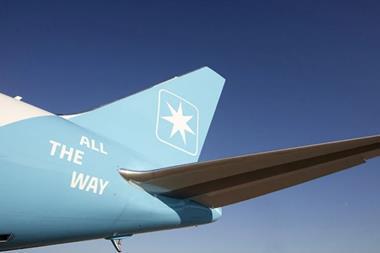Amsterdam Airport Schiphol has declared that e-commerce is “helping to strengthen” China’s position as the Dutch gateway’s largest cargo market, with exports from the Netherlands to the Far Eastern nation on the rise.
A trade delegation from the Netherlands is due visit to South China later this month and will comprise representatives from Schiphol, the Port of Rotterdam and the Holland International Distribution Council (which includes 25 Dutch logistics companies).
Jonas van Stekelenburg, cargo director at Schiphol, observed: “Historically, China is recognised as the world’s leading manufacturer, but Chinese consumers are increasingly sourcing a wide range of online luxury items from The Netherlands and across Europe. On the back of this demand, a significant trend is for increased imports into China of goods bought on online marketplaces.
“China’s consumers are sourcing overseas consumer items in ever larger quantities, and it is this trend and business growth that Amsterdam Schiphol Cargo is poised to capture,” he added.
The main types of e-commerce goods moving through Schiphol to China are baby products, fashion items and cosmetics, while in the other direction hi-tech and lifestyle products predominate.
The airport has connections with six out of 12 government-assigned cross-border e-commerce pilot zones in China. Eight airlines operate more than 100 flights a week from Schiphol to 12 Chinese cities, with China Cargo Airlines having added Xi’an-Amsterdam flights to its network earlier this year.
Noting that the agreement with China Cargo Airlines is in line with the Chinese government’s One Belt One Road policy, van Stekelenburg pointed out: “Dutch Customs have specifically created a ruling for fast Customs clearance for low value e-commerce shipments with the Chinese authorities.”
Schiphol’s affirmation of its growing traffic with China comes in the wake of news that the airport has reached the cap on slots that was agreed in 2008 (a maximum of 500,000 per annum until 2010).
As reported in Air Cargo News, IATA and EU regulations stipulate that airlines must fly at least 80% of their granted slots as scheduled in order to keep them; whose traffic is less predictable than passenger flows, look most likely to lose their Schiphol slots when these are redistributed.










